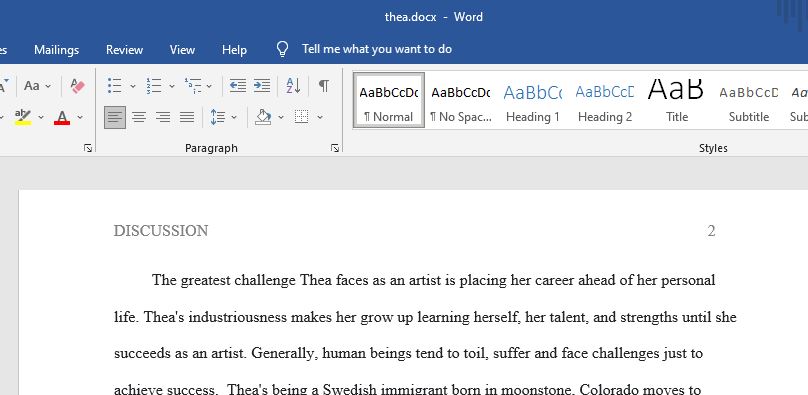Making a response to the question below-Thea Kronborg
The character of Thea Kronborg in Willa Cather’s The Song of the Lark is not necessarily lauded as a protagonist of heroic proportions or even a character it’s easy to get behind.
“The growth of an artist is an intellectual and spiritual development which can scarcely be followed in a personal narrative. This story attempts to deal only with the simple and concrete beginnings which color and accent an artist’s work, and to give some account of how a Moonstone girl found her way out of a vague, easy-going world into a life of disciplined endeavor. Any account of the loyalty of young hearts to some exalted ideal, and the passion with which they strive, will always, in some of us, rekindle generous emotions” (Cather 307).
We follow her development through childhood and into young adulthood, observing her struggles and joys in the forming of her identity, in her relationships, and in her artistic formation. We see her defense of the Mexicans and their lifestyle to her own sister, her dedication to her work and growth as a singer, her exploration of new cultures, sites, and lifestyles as she travels the world, and her life-long friendship with Dr. Archie. We also speculate about her racism, observe as she chooses to stay in Europe instead of return home to be at her dying mother’s bedside, and witness her disdain for lesser artists and the ignorant fans who cheer for them. To some, Thea is a difficult character with whom to sympathize, and to others, her devotion to her voice–her art–establishes her as a consummate artist and musician whose behaviors are understandable if not expected of a true artist.
To what extent are Thea’s difficulties and challenges as an artist of her own making?
Please consider at least one difficulty, hardship, or challenge Thea faces as an artist and explain how it is of her own making or how she brought it on herself. Please rely on the text to support your claims. You may approach this question at any point in her life. In your answer, please feel free to refer to dignities, indignities, toils, suffering, industriousness, mental or intellectual work, physical work, subduing the earth, the necessity of rest, that “man develops through love for work” (Laborem Exercens), and any other concepts introduced thus far in this course. You may also incorporate dimensions to art and work that we have not discussed.
Answer preview:

word limit:294
